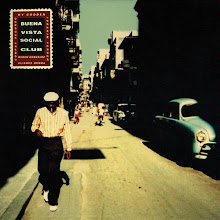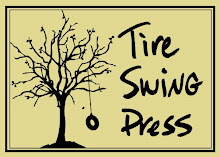This week I’m bringing a critical eye to so-called “inspirational sayings:” turns of phrase designed to convey hope in times of despair, grant strength to the downtrodden, and shine a light where once there was only darkness.
As exemplified by that nauseating topic sentence, even the most cynical of writers can find themselves drawn to flowery analogies when inspiration is involved. This is due to the baffling truth that optimism increases exponentially when combined with half-hearted wordplay and flimsy metaphors. As proof, one needs only peruse the multitude of “inspirational quote of the day” websites scattered about the Internet like the abandoned children of an overly fertile, deadbeat Care Bear. Online, these phrases are as prevalent as pornography, evoke about 40% as much masturbation, and are far more harmful to our society than a thousand hours of German pooping videos. For even the vilest sex act ever filmed is guiltless of the sins committed by inspirational phrases: the sin of false hope with a thin sugar coating.
The most insidious of these phrases seem upbeat at first glance, yet after rudimentary examination reveal themselves to be as depressing as a stillborn smurf. My first example, “You never know,” is so delusional a phrase that the New York State Lottery employs it as their slogan. It presents itself as a rebuttal to the pessimists:
“I’ll never win a million dollars. That’s crazy.”
“Hey, you never know!”
Unfortunately, the marketing geniuses behind legalized gambling overlooked the fact that this phrase can just as easily be cripplingly depressing if used in response to a more positive statement:
“We’ll have beautiful children together.”
“Hey, you never know!”
“...well, as long as they’re healthy.”
“Yeah, but you never know...do you?”
“I guess not. But you love me. And that’s all that matters, right?”
“Sure. I mean that’s what I keep telling you.”
“But I’ll never really know...will I?”
“Definitely not.”
The fact that nothing can ever be truly known is one of life’s great tragic ironies. And yet, its inspirational usage elicits warm smiles and wasted change from thousands of people every day. For this reason I give “You never know” a solid 2 out of 10 stars.
Next up for review is the insidious backhanded compliment, “You’re one in a million.” The sins of this phrase are fairly obvious: while clearly intended to boost confidence, its literal translation smacks of isolation and insignificance on a massive scale. What types of things stand out as one among millions? Grains of sand on the beach? Stars in the sky? Trees in the forest? Bloggers? Being “one in a million” says nothing about your value in comparison to your 999,999 competitors. A far more specific and accurate compliment might be “You are a successful sapling in a field of failures” or “your accomplishments make me feel bad about my own. “While these phrases may keep it “too real” for the inspirational quote establishment, they easily trump the unspecified praise of “You’re one in a million,” which earns a merciful 4 out of 10 stars.
Most inspirational phrases are in the public domain, originating in that long ago time when very little had been said and almost anybody could end up with their ramblings sewn on a pillow. The coining of a modern inspirational phrase is a rare thing, and attempts are frequently clumsy and misinterpreted. Still, every now and then a group of young men will sell their souls to the devil in exchange for wild success, eternal life and the authorship of a memorable inspirational quote. I am referring, of course, to “You Can’t Always Get What You Want,” by the Rolling Stones.
At first glance, I find this quote much more satisfying than the previous two. Its abrasive honesty is refreshing, and it seems to be the first truly post-modern inspirational phrase. Unfortunately, it sells itself out in the 2nd act: “But if you try sometimes, you just might find, you get what you need.” Close inspection reveals that lyricist Mick Jagger’s efforts to fit the phrase gracefully into the chorus of a song have resulted in the addition of a depressing number of modifiers. Consider the amount of variables in this sentence:
“But if you try, sometimes, you just might find, you get what you need.”
When you consider the likelihood of trying in the first place, the dubious timing, and the fact that even a successful attempt “just might” be successful, the chances of actually getting what you need seem very, very slim indeed. That’s why this phrase, which in the last few decades has become a kind of fatalist-rallying cry, earns only 6 out of 10 stars. While it seems to affirm through multiple choruses that everything happens for a reason, in reality it sounds more like a poorly thought-out exchange with the Almighty:
“God, why are we here?”
“Because…um...if you…maybe, um…try and believe in me...I, uh…could…sometimes…possibly…have a divine plan.”
“So do you have a plan or not?”
“I just might!”
“But we’ll never know, will we?”
“Oh hell no.”
Jamie King is a writer and comedian from Washington State, based in Brooklyn. Recently, his work has appeared online in McSweeney's Internet Tendency and onstage at The Upright Citizen's Brigade Theatre, New York. More essays, videos, and propaganda can be found at www.kingjamie.net.







1 comment:
These inspirational quotes are important because they act as reminders to us on how we should act and take action towards success.
Post a Comment